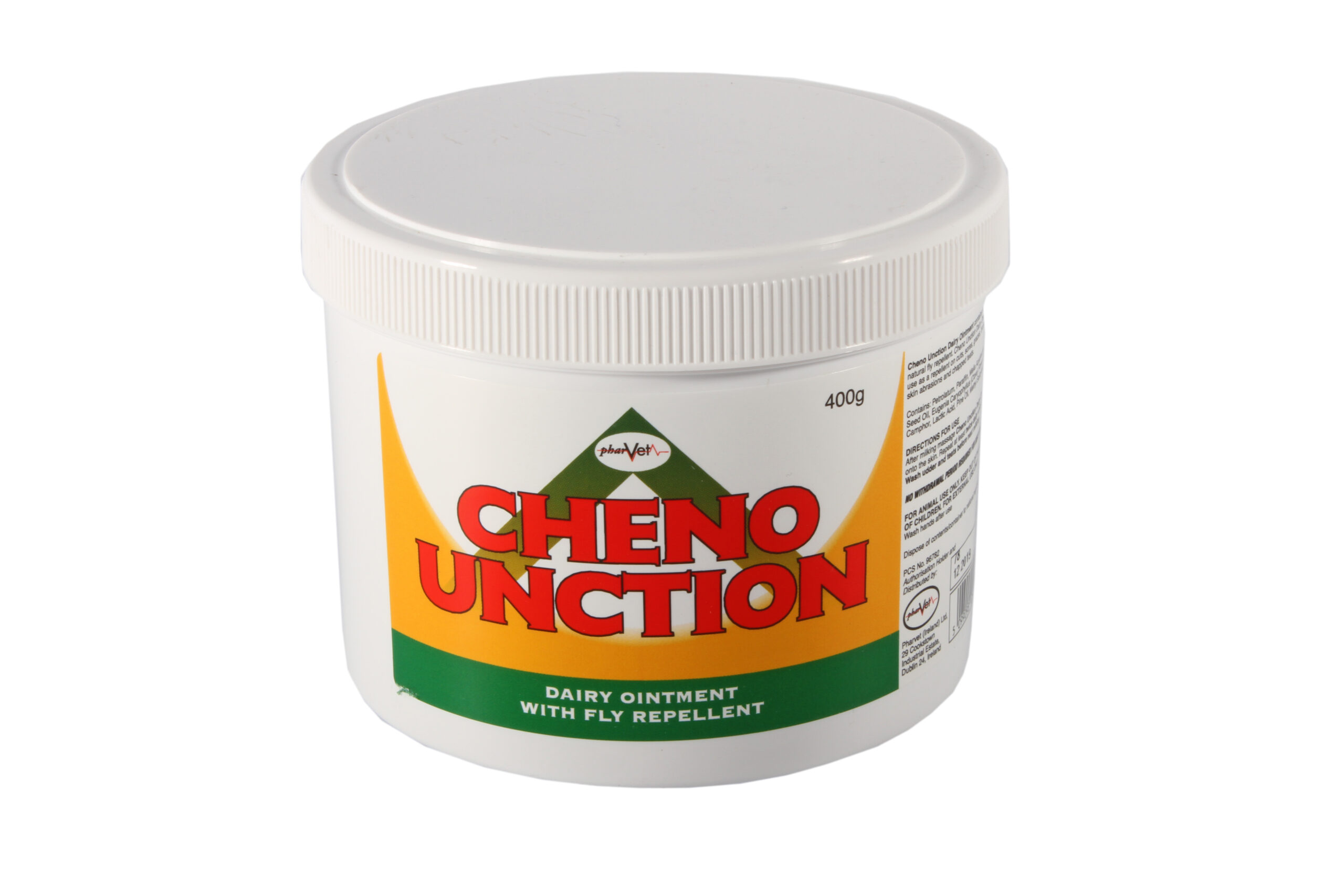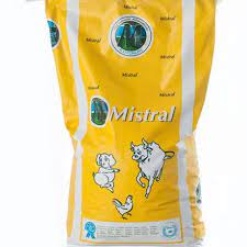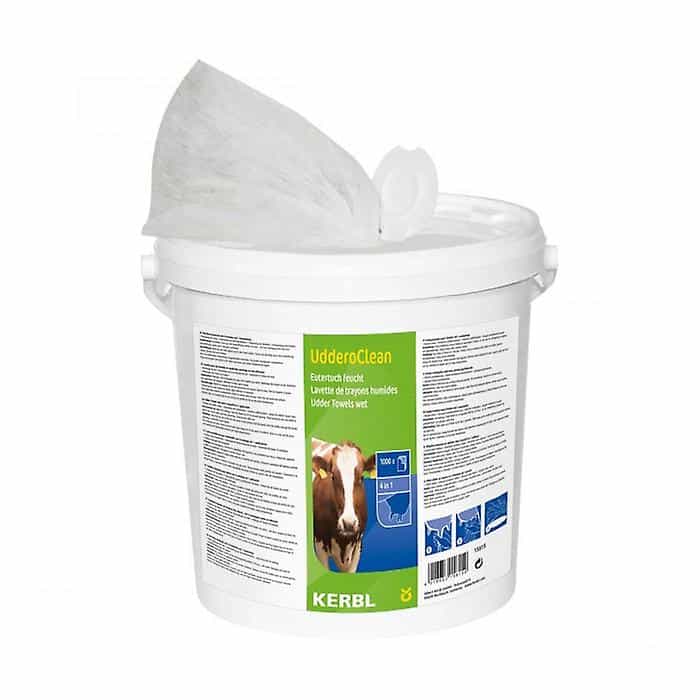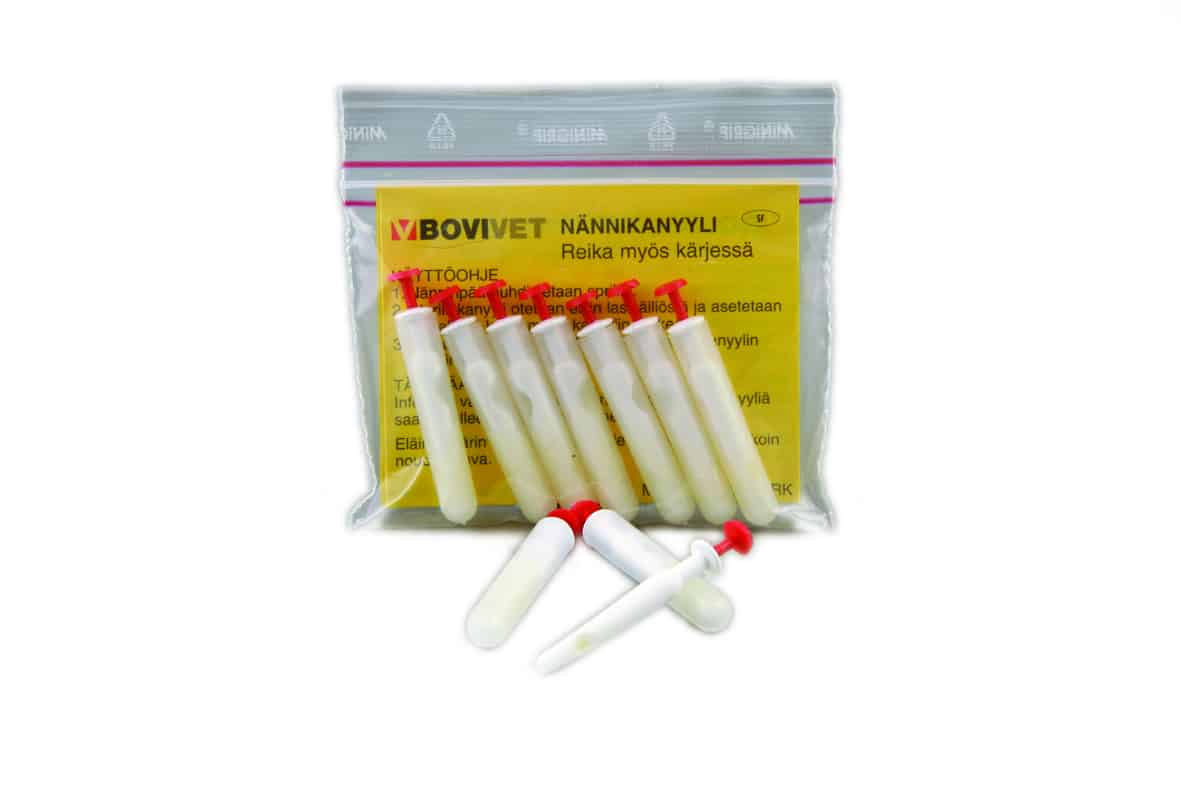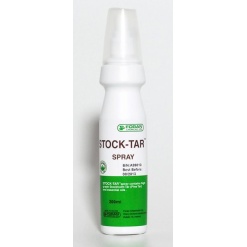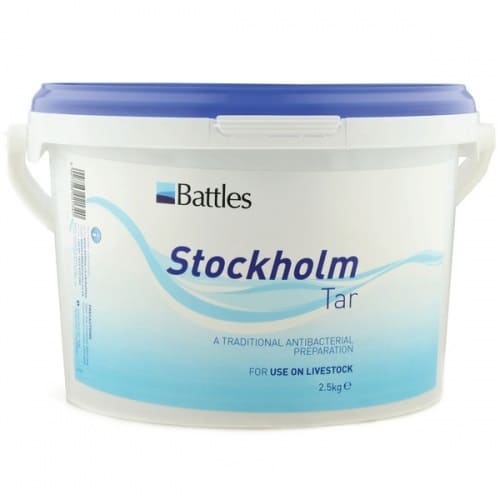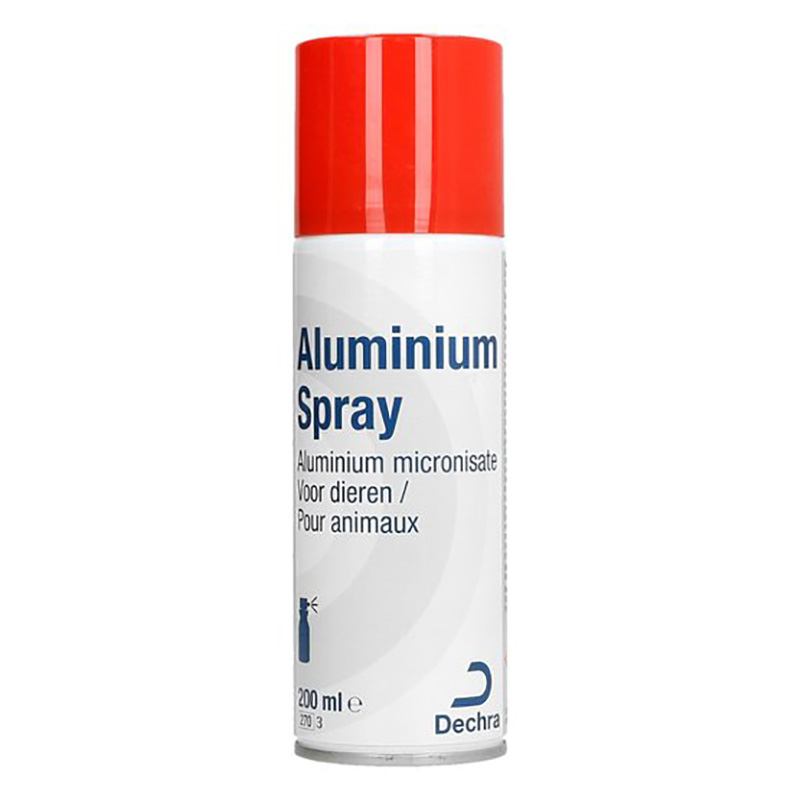Cheno Unction Ointment
€16.26 – €28.46 ex.VAT
€20.00 - €35.00 inc.VAT
Cheno Unction dairy ointment is ideal for cuts, grazes, bruises, chapped teats and skin abrasions
Externally applied gel for the treatment and control of Mastitis.
Soothing antiseptic gel for the treatment of minor skin conditions.
Contains anti-inflammatory agent salicylic acid.
No milk withdrawal period.
For cuts, grazes, bruises, chapped teats, and skin abrasions in cows, there are various dairy ointments or udder creams available on the market but we have found Cheno Unction Ointment can be suitable for these purposes. This ointment is specifically formulated to promote healing, soothe discomfort, and protect the affected areas. While specific brand names may vary, here are some general characteristics and benefits of dairy ointments for cows:
- Wound healing: Dairy ointments often contain ingredients that support wound healing, such as emollients, moisturizers, and natural healing agents. These ingredients help promote tissue regeneration and aid in the recovery of cuts, grazes, and bruises.
- Moisturization and skin protection: Chapped teats and skin abrasions can occur due to dryness or environmental factors. Dairy ointments provide moisturization and create a protective barrier on the skin, preventing further damage and promoting healing.
- Antimicrobial properties: Many dairy ointments contain antimicrobial agents that help prevent or control infections in wounds or damaged skin. These agents may include antiseptics or natural ingredients with antimicrobial properties, such as tea tree oil or honey.
- Soothing effect: Dairy ointments often have soothing properties to alleviate discomfort or pain associated with cuts, grazes, or bruising. They may contain ingredients like aloe vera, chamomile, or menthol, which can have a soothing and calming effect on the affected areas.
- Udder health support: Since chapped teats are a common issue in dairy cows, dairy ointments specifically formulated for udder health may have additional ingredients to address this concern. These ointments can help moisturize and protect the teats, reducing the risk of cracking or further damage.
It’s important to follow the instructions provided by the specific dairy ointment product you choose, as the application frequency, amount, and method may vary. Additionally, if the condition persists or worsens, or if you have any concerns about your cows’ health, it is advisable to consult with a veterinarian for proper diagnosis and treatment recommendations.
Related products
€15.00 - €30.00 inc.VAT
€20.00 - €47.99 inc.VAT


